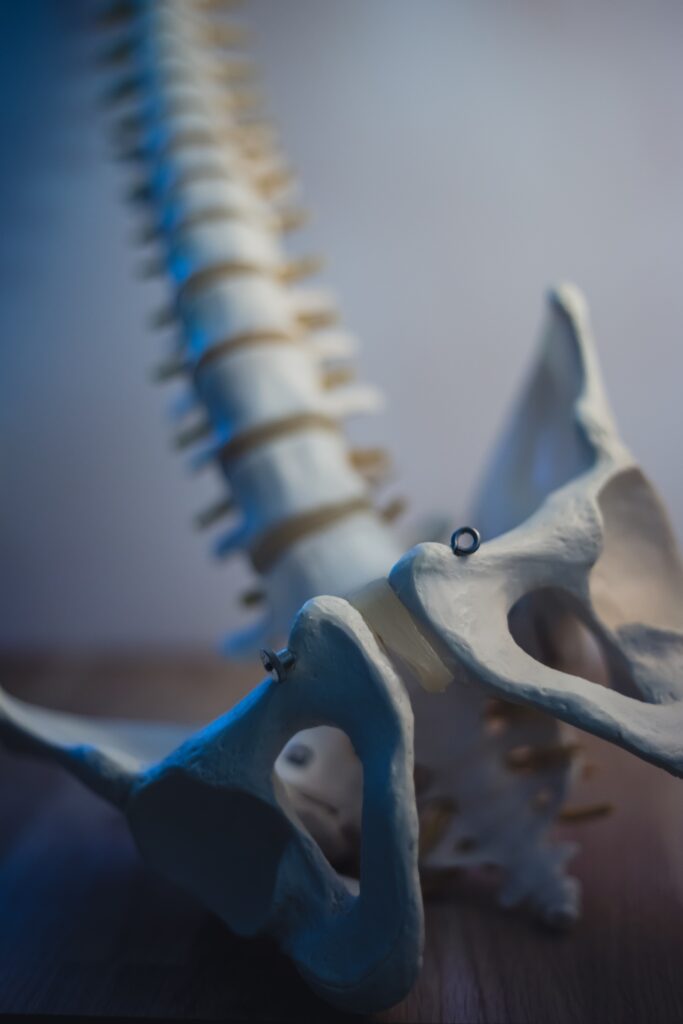Interview with Isabel Hartounian, Pelvic Floor Therapist

One of our favorite things to share with our clients and new parents in the Bay Area is other resources that may be helpful to your family. We hope you enjoy this week’s blog interview with Isabel Hartounian, pelvic floor therapist.
Hi Isabel, thank you for joining us on our blog this week! We are excited to learn more about you and your practice. Can you start off by telling us a little bit about yourself?
Thanks for having me a part of your blog. I am a mom of two school-aged kids, born and raised in the Bay Area, and a licensed occupational therapist (OT) of 14 years. After my pregnancy and postpartum experiences, I had no idea how to heal my body while also learning to be a mom.
I was raising my kids while working as a pediatric OT in clinics and homes and spent a lot of time learning about other moms’ experiences. When my youngest was four years old, I encountered health issues that made me hit my tipping point, and I asked my doctor for a referral to a pelvic floor therapist. Through my own experience, I became passionate about pelvic health and wanted to serve moms during pregnancy and postpartum; thus, Thrive Maternal Care was born in 2022.
How does your practice work?
I help moms navigate pregnancy and postpartum recovery so they can feel capable of healing, reconnect with their bodies, and confidently return to the activities that matter.
We start with a 15-minute phone consultation where I want to learn what you’re having trouble with and what you would like to accomplish; after this, we will have our first visit, which is a 90- minute evaluation ib home. We look at your posture and how you do activities that are causing your symptoms and can do an internal vaginal assessment if you feel comfortable. My job is to investigate why I think your symptoms are happening and collaborate with you to solve your problem in future visits. Follow-up visits are 60 minutes in your home. We’ll go through all kinds of exercises, special breathing techniques, some fun anatomy education, and muscle releases to help you (whether it’s to improve your core or help your pain go away).
You are a pelvic floor therapist and an occupational therapist. Tell us how these two therapies together can further help your clientele.
Occupations refer to how you occupy your day – what are your meaningful, daily activities? OTs focus on functioning and helping people participate in their life. Moms (pregnant or not) are experiencing pain, weakness, and incontinence while also living their lives – caring for themselves, caring for their family, and managing their roles at home, at work, and in the community. I want to treat moms as whole people. How are pelvic symptoms (like leaking, constipation, painful intercourse, and weak core strength) affecting your daily life? Are you avoiding playing with your kids at the park because you might leak or hurt your back? Are your symptoms keeping you on edge or discouraging you from having fun in the sheets? Let’s work on toileting habits, strengthen muscle groups, and chat about strategies to help you relax with your partner.
Can this therapy be beneficial during pregnancy?
100% yes! Moms don’t receive guidance on how their body mechanics change as their belly grows. Your posture changes so much, and your body handles a lot of extra pressure. Pelvic floor therapy in pregnancy is PREVENTION of future issues postpartum. Let’s talk about your back or pubic pain and how to dress or pick things up daily. Let’s teach you how to manage pressure to help reduce diastasis (or belly separation). I can educate you on breathing in labor, especially pushing, to reduce your chances of tearing or injury.
Do you have any recommendations for people at home to do?
My #1 tip is not to strain when you pee or poop. You use the bathroom several times every day and what you do in there makes a big difference in keeping your pelvic floor muscles healthy. Use a squatty potty and exhale like you’re blowing out birthday candles. Peeing especially should take no effort to start. If it does take action to pee or you’re straining to poop, it’s time to see a pelvic floor OT/PT.
Also, stop doing Kegels! They are not as helpful as you think, people do them incorrectly, or you may have tight pelvic floor muscles and have no idea. Kegels will make you feel worse if you are tight. We explore this in your evaluation.
When is a good time for someone to see a pelvic floor therapist?
Top reasons to see me:
- You’re leaking when you cough/sneeze or rush to the bathroom a lot (sooner than every 2 hours is too soon). It’s common for moms to experience incontinence, but it’s not NORMAL, meaning you do not have to live with it. You can actually stop leaking.
- You feel your core or belly is jiggly or weak. You’re not sure how to get your core strength back. You might have diastasis recti.
- It hurts when you’re getting intimate with your partner. You don’t have to live with this pain, either.
- You’re pregnant and want to be informed and proactive about your body changing and how to help yourself.
Is working with you something that is continuous or only needed for a short amount of time?
It depends on your health history, how long you’ve been dealing with symptoms, and how ready you are to help yourself and try out strategies. We work together on a treatment plan and a home program, and I’ll have a better idea about sessions after I assess you. On average, a person may need 6-8 sessions, ideally once a week.
Where can our clients go to learn more about you and the care that you provide to the Bay Area?
You can schedule a free phone consultation at thrivematernalcare.janeapp.com. You can check out my FAQ page and learn more at www.thrivematernal.com. I can’t wait to support you!
Thank you for joining us
We’d like to thank Isabel for joining us on this week’s blog. After meeting her in person and talking about her practice, it became clear that her number one priority is providing amazing care to people. She goes above and beyond to come up with individualized care plans for each client. Stay tuned for more exciting news about her practice in the future!
Thank you for reading this weeks’ blog, ” Interview with Isabel Hartounian, Pelvic Floor Therapist.” For more helpful tips on all things pregnacy, postpartum, and parenthood click here.

